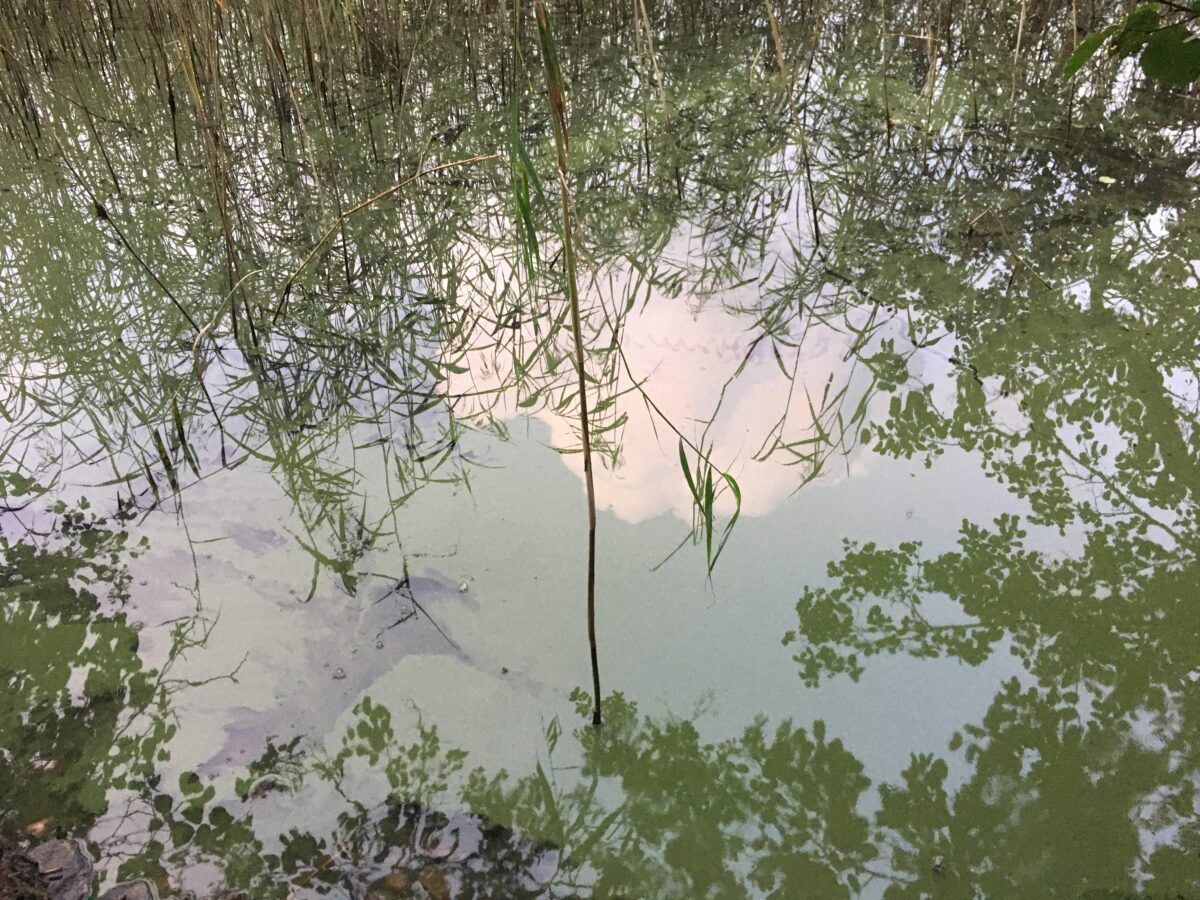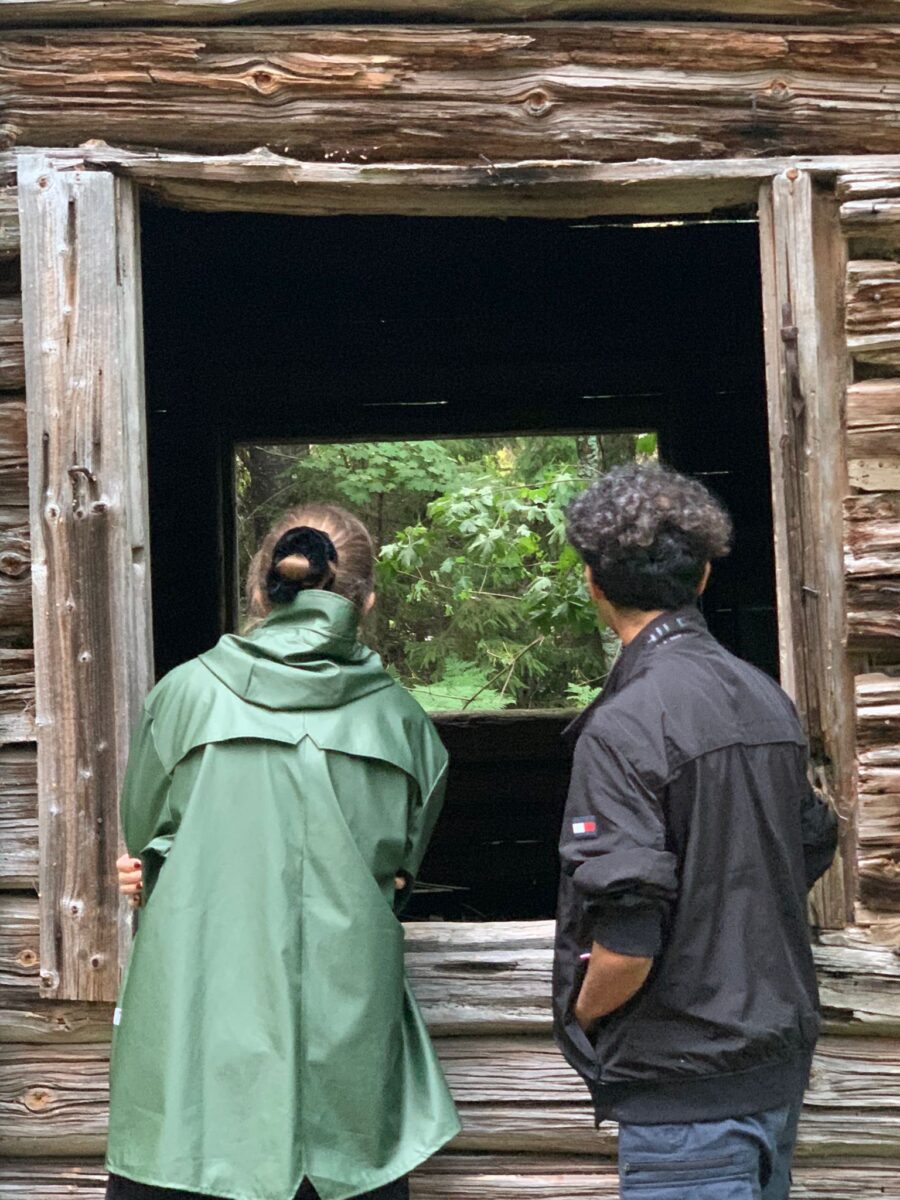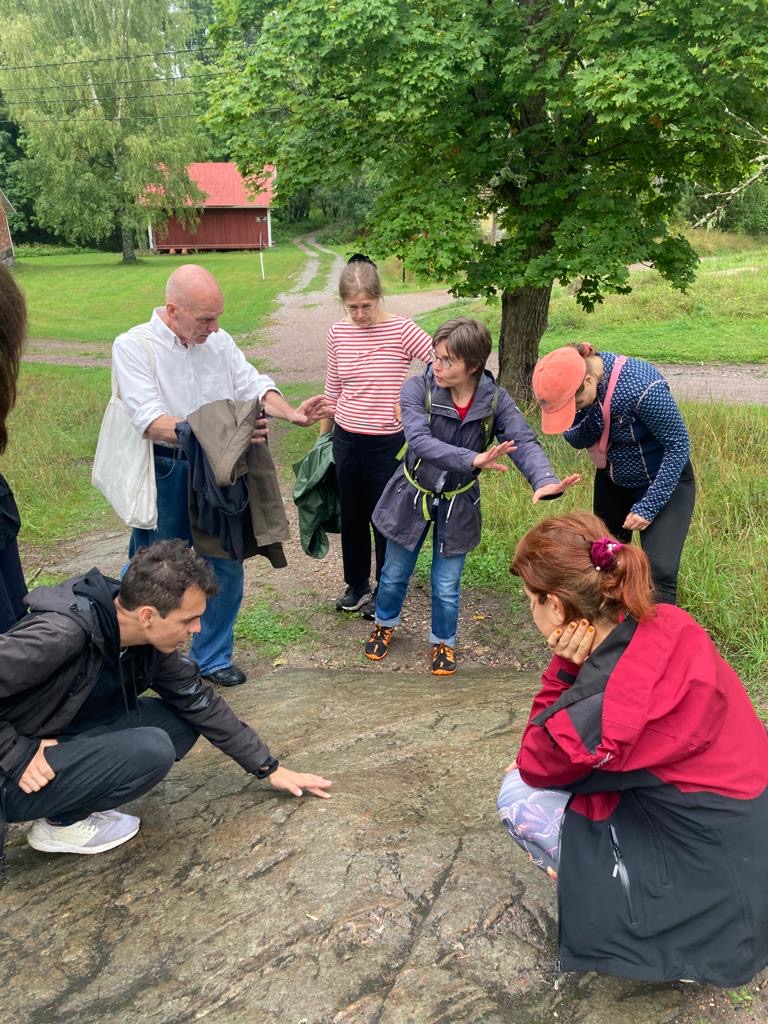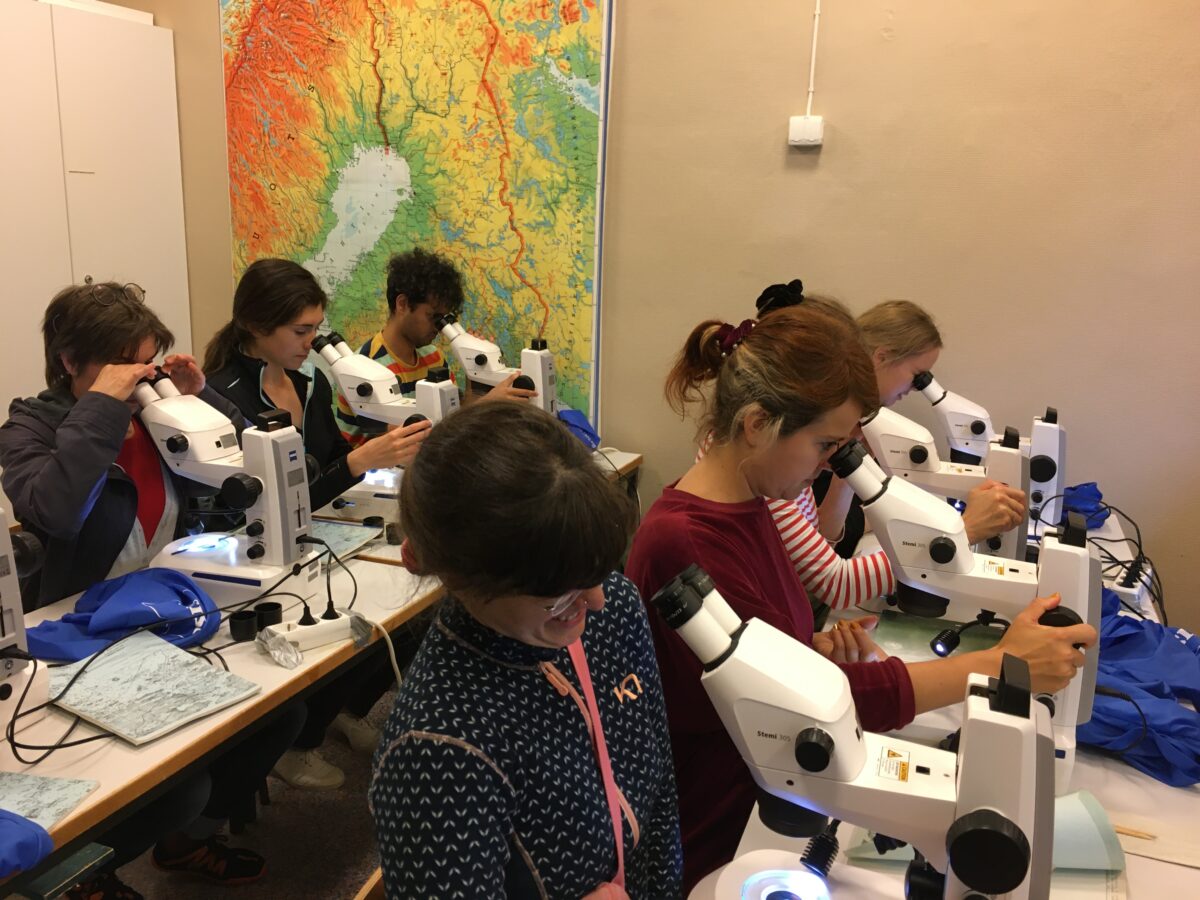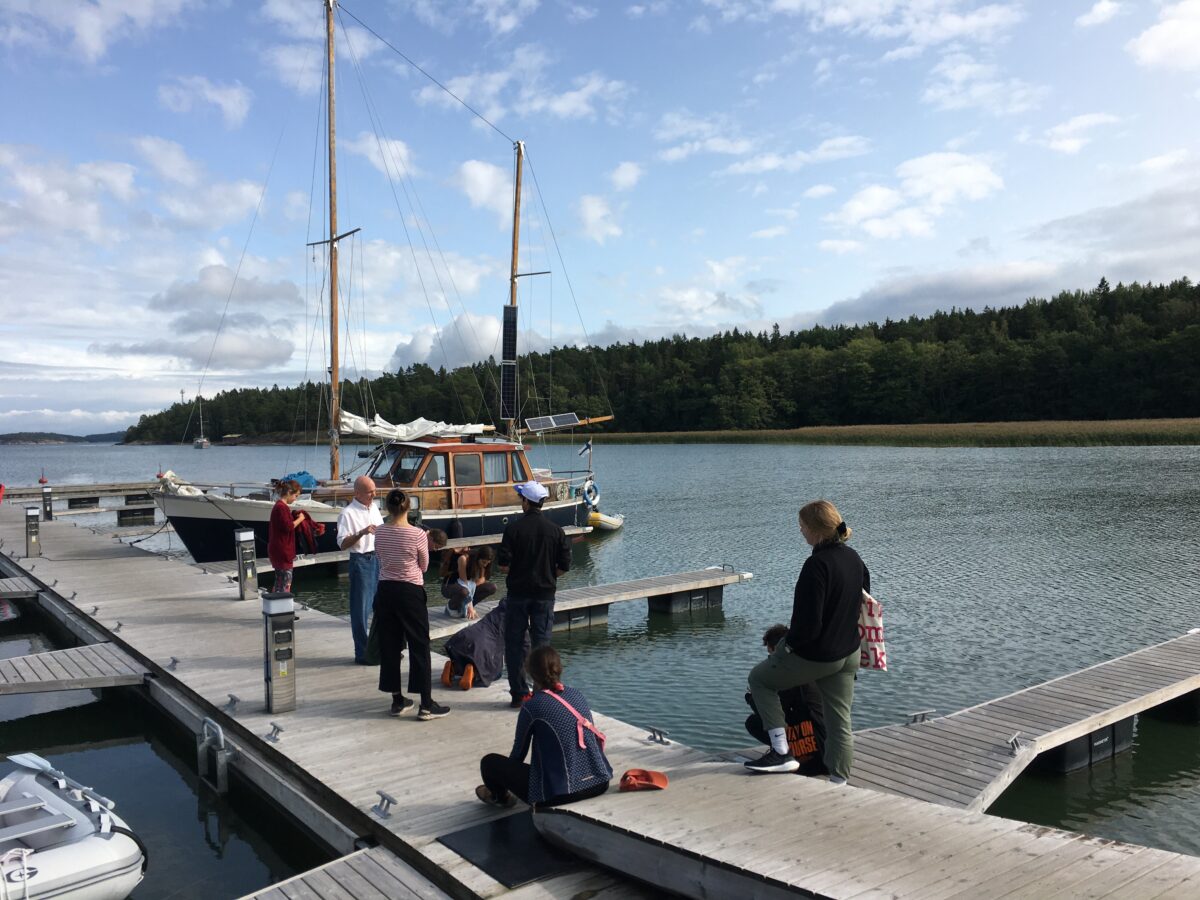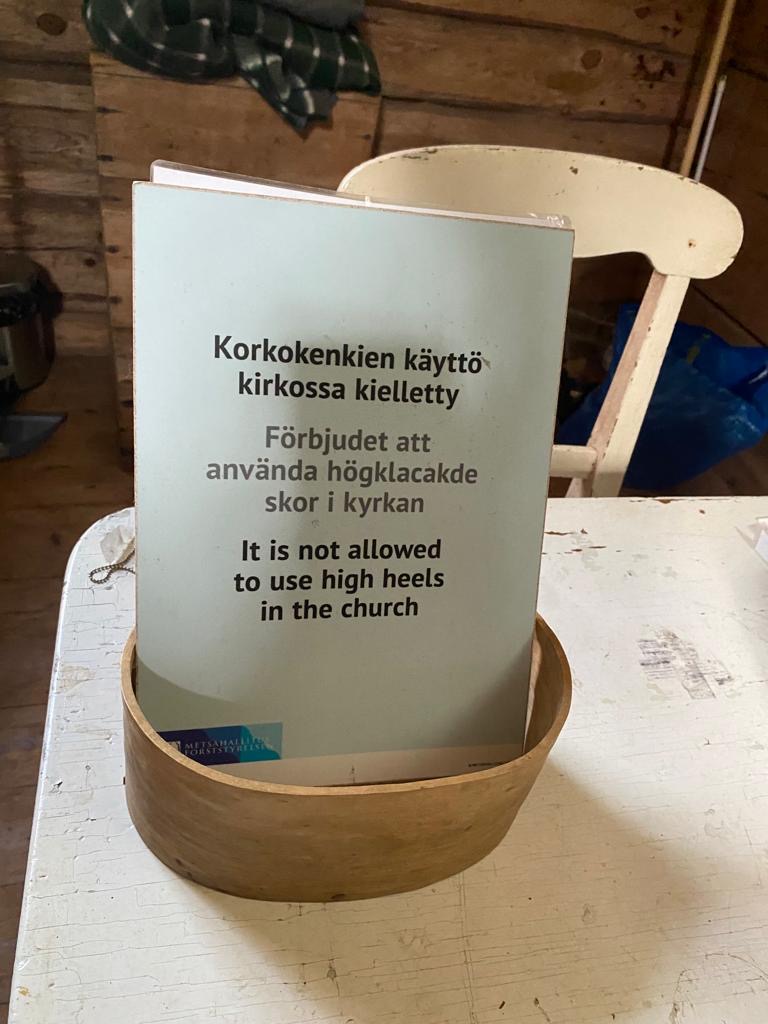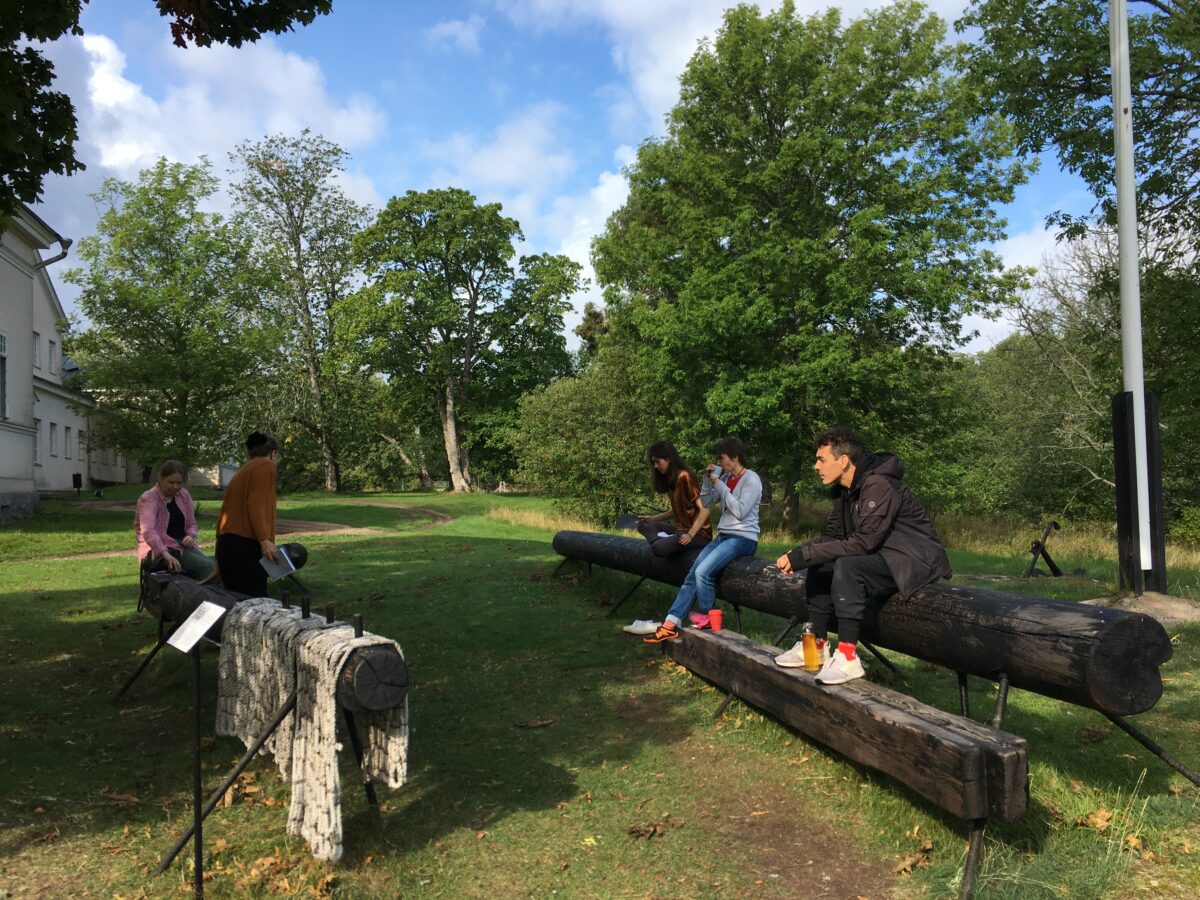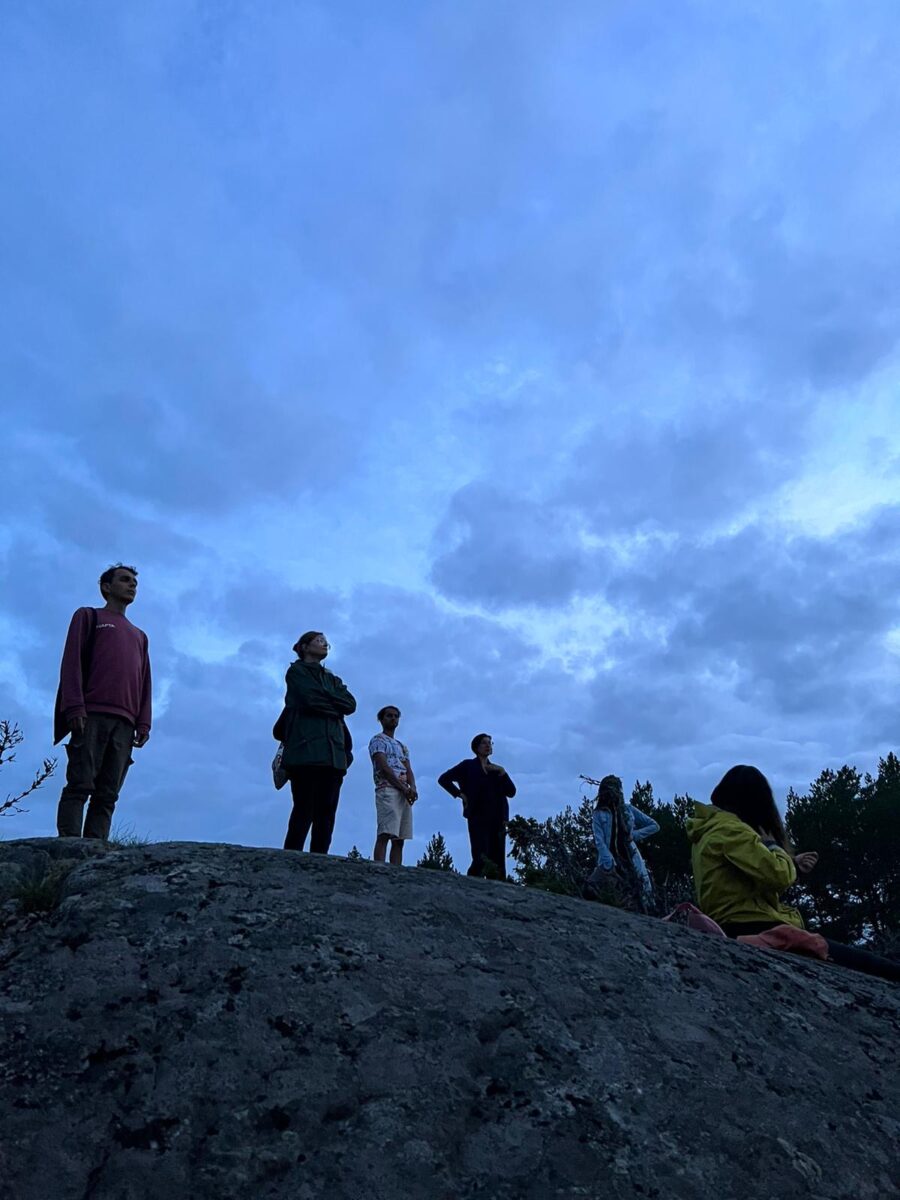Aboagora Pre-Symposium VI: Edges of Knowing
20-22.8.23
Seili
The Aboagora Pre-Symposium, Edges of Knowing, invited doctoral researchers in the arts, humanities and sciences, along with MA arts students, to reflect on what haunts the systems of knowledge and the limits of the thinkable at this time of omnicrisis, uncertainty and change. In anticipation of the Aboagora Void Symposium, a total of eight researchers travelled to the island of Seili on 20-22 August for a two-day retreat. Led by curator Taru Elfving, the group consisted of artists, philosophers and scientists who applied to the retreat via an open call: Ida Grönroos, Aditya Jeevannavar, Sanna Lehtinen, Carlos Lesmes, Saara Mildeberg, Sanna Ryynänen, Alizée Ville and Nina Vurdelja.
The main aim of the Pre-symposium was to delve into the voids hovering at the edges of knowing and to bridge the gaps between disciplinary boundaries. Seili, with its complex history of institutions of care and control – from the leprosy colony and mental asylum for women to the current environmental research, nature conservation, and tourism development – played a key part in choreographing the retreat’s discussions. As well as taking into consideration their own arrivals and landings in a place that is not yet known to them, the participants engaged with a series of questions that called for a range of approaches to voids in the context of the island:
How can we address the hauntings in the landscape, in the archive or data sets, which gesture towards something that has been omitted or gone unnoticed and unnamed?
How do we attune to and approach these signals and signs of “nothingness” with a sense of urgency and curiosity, yet without hastily presuming access and opportunistically extracting from or filling the perceived void in a colonial manner?
What lies beyond the bounds of knowledge(s), the reach of senses, and tools of sensing?
Situated amidst the layered, socio-ecological narratives of Seili and the Archipelago Sea, the Pre-symposium was also anchored by a series of methods and modes of engagement carried out in collaboration with the Archipelago Research Institute. The group was taken into the archipelago’s underwater world through the care and guidance of Professor Ilppo Vuorinen and the long-term research of the institute. Time was spent observing sea samples through microscopes, which made visible some of the agencies that would otherwise escape human vision.
These practices of observation were accompanied by more embodied activities such as walking and swimming. In meandering through thickets of trees and over lichen-adorned rocks, the participants paid attention to the complex layers and sediments of time, history and ecology. In wading into the sea, attentions turned to the uncertain levels of danger posed to the group by the presence of blue-green algae floating in the warming waters.
As the Pre-Symposium came to an end, new reflections and questions on different types of voids and edges of knowledge emerged. In conversing together in Seili, the participants posed situated queries regarding signs of control and missing knowledges; hidden voices and agencies; and notions of care towards those we cannot see, sense nor wish to capture:
Why are there so many signs to control the movements of visitors in a conservation area and cultural heritage site? What gaps in knowledge does this signal to? What alternative modes of guidance could engage visitors with this place and explain why certain things are prohibited?
Whose names, voices, perspectives and agencies are not present in the historical documents displayed in the old hospital, cemetery and island landscape? How can we approach them and sense their haunting presence without presuming knowledge? What is missing from the maps but can be read in the landscape, and vice versa?
How can we care for and be accountable for that which cannot be captured by our senses or structures of knowledge, yet nevertheless makes our life and work possible?
Following the retreat, the Pre-Symposium group returned to Turku to share their observations and experiences with a live audience at the Aboagora Symposium held on 23-25 August at the Sibelius Museum.
Taru Elfving (CAA) has been leading the Aboagora Pre-symposium on the islands of Seili and Korpo since 2020. Each year, an open call invites researchers and MA arts students to apply for the retreat. The annual topic was derived from Aboagora’s The Five Rings thematic plan: Earth, Water, Fire, Wind and Void (2019-2023).
For more information on the Aboagora programme, visit: www.aboagora.fi.
